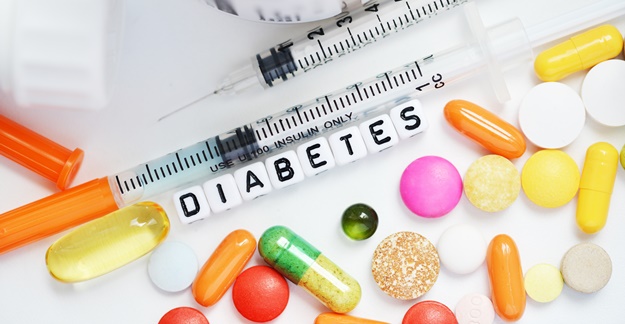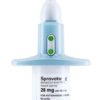Browse This Article
Your doctor has just prescribed you a diabetes medication. Here’s how they work to reduce blood glucose levels and what to be aware of while taking them.
At a recent visit to the doctor’s office, I had blood drawn for a number of lab tests, including ones to detect diabetes. If you’re over 45 — like I am — you’ll probably be tested for diabetes at some point in time as well. Our risk factors for adult onset diabetes increase as we age. These risks include weight gain, poor eating habits, less active lifestyle and a family history of diabetes. It’s important to be screened for diabetes because it can lead to serious health problems, including heart disease, blindness and kidney disease. Diabetes is the seventh leading cause of death in the United States and accounted for $327 billion in healthcare costs in 2017.
You may be asked to fast before your doctor appointment. The fasting blood glucose tests for the amount of sugar in your blood at time of testing. Your fasting blood glucose test result should be about 100 mg/dl or less. If it is higher, you could be pre-diabetic or considered to have diabetes. Another test is a glycated hemoglobin (A1C) test, which provides a better history by indicating what your average blood glucose level has been over the past two to three months.
Hemoglobin A1C test levels of 5.7% or less are considered normal. If your A1C test level is over 5.7%, you would be considered pre-diabetic; over 6.4% and you are considered to have diabetes.
When Diabetes Medications Are Prescribed
If the results of your tests are higher than normal, your doctor may determine you need treatment. He or she will then probably discuss diet and exercise, and may prescribe oral medication to control your blood glucose levels if necessary.
If you have diabetes, your body is not able to regulate and store blood glucose (sugar) properly. Oral diabetic medications are not insulin – a hormone made in the pancreas that helps regulate, or control, your blood sugar and helps your body store it in muscles, fat tissue and liver to be used as energy later on — but they help your body maximize use of what insulin your pancreas releases. Oral medications for diabetes stimulate the pancreas to produce more insulin or to help increase insulin sensitivity.
The right time to take oral diabetes medications varies with the product prescribed, and there may be a specific time to take your diabetes medication for optimal effectiveness. Oral glipizide is fairly fast acting and should be taken before meals and at the same time each day. Other oral diabetes medications like metformin should be taken with food or after a meal to prevent upset stomach or other gastrointestinal side effects. Consult with your pharmacist or prescriber for proper times to take your particular medication. Also, all diabetes medications have potential side effects – some quite serious – so it’s important to be on the lookout for them.
Meds Don’t Cure Diabetes
It’s important to understand that taking these medications does not cure diabetes. Diabetes can only be controlled by taking your medications regularly as prescribed. Your diabetic medication needs and doses are individualized for you, and missing or skipping doses means loss of blood glucose control and elevated blood glucose levels. It’s this high level of glucose in your blood that causes damage to your organs.
Compliance or adherence to a medication schedule that fits into your daily routine should be established so you don’t miss any doses of medication. Missing or skipping doses means loss of diabetic control. The importance of taking your diabetes medications on a regular schedule cannot be overemphasized.







